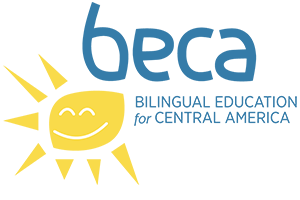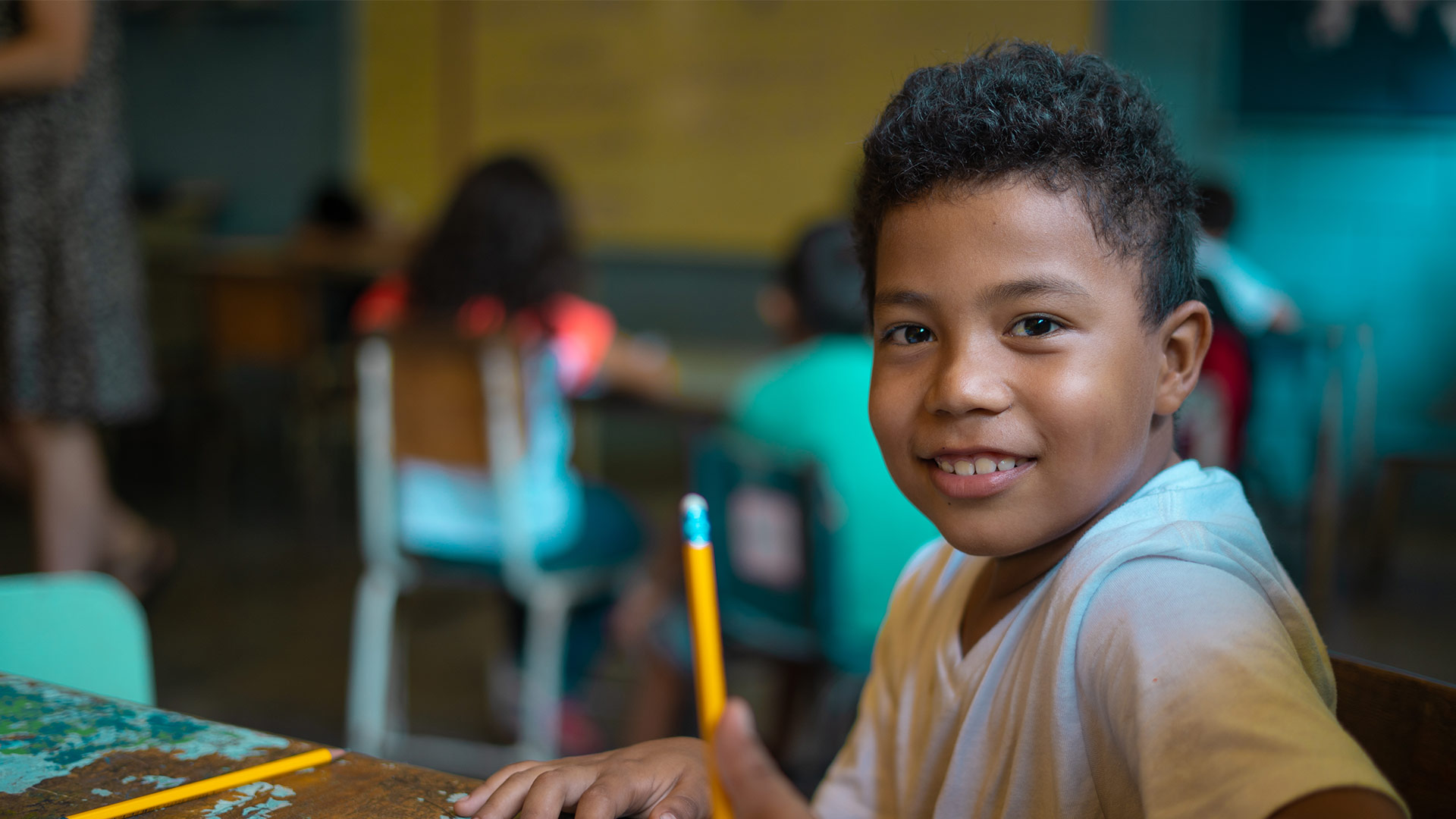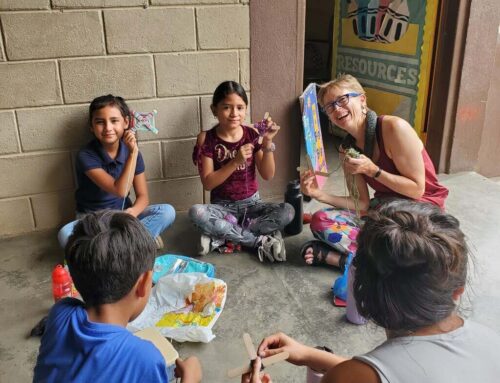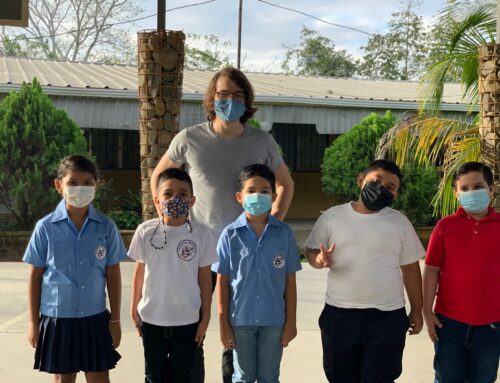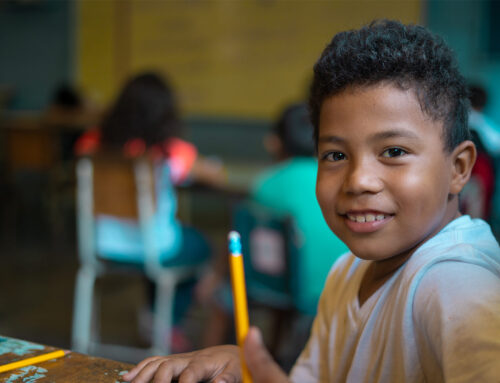After living many lives, including five years as a mechanical engineer, Mr. Derek has settled into his role as the math teacher for 7th-9th grade at San Jeronimo, resident handyman to everyone in Cofradia, and master chef of Thursday night cooking team. Far from his native Kansas, you can find him most afternoons with a good book relaxing in the hammock or planning a weekend trip to Copan. Derek is one of eight teachers who returned for a second (or third!) year in Honduras and shared his thoughts on what it’s like to teach the second year and his experience with BECA and his students. For more information on volunteering with BECA, see https://becaschools.org/get-involved.
What’s your favorite place that you’ve visited in Honduras?
I have always jam-packed my vacations with all kinds of activities and they usually include camping and hiking. However, since becoming a teacher, i.e. when I moved to Honduras, all I have wanted to do on vacation is relax. Give me coffee, a book, and a view and I’m content. Honduras is loaded with beautiful mountains, beaches (minus the trash), and wonderful people but my favorite place to visit is the town Copan Ruinas. I’ve probably been there a dozen times during my time with BECA. For me, it’s the perfect weekend escape from Cofradia because it is consistently 10-15 degrees cooler, there are a variety of restaurants serving international food, there is a German ex-pat brewing German style beers, and great cafés. The Mayan ruin site is too expensive to hit up every time, but it’s a beautiful and mysterious site. I also love to relax and soak my teacher-weary body in the hot springs that are in the mountains above Copan. Copan has it all.
Where can you be found on a Saturday morning?
I usually crash out pretty early on Friday nights and usually get up early on Saturday mornings to have some alone time. The house where I have live has a patio with a beautiful view of the mountains. It’s a great place to relax and enjoy the morning. I’ll brew some coffee (see below) and post up in the hammock to read. Usually around ten, my housemates will get together and we’ll make a big brunch. Saturday mornings are the best!
What is your favorite part of the day or class to teach?
Both years teaching at SJBS my favorite class to teach has been 9th grade math. The students are more mature and as a result we are able to have more fun while getting the necessary amount of work done. During the linear equations unit we have a huge scavenger hunt where the students graph their clues on a map of the school. I also love the genuine relationship that I’m able to build with my 9th grade students. We talk about everything from good books to romantic relationships to sports and everything in-between.
Do you have a favorite brand of Honduran coffee?
Honduras is known to grow some of the world’s best coffee but the best beans are exported so it’s surprisingly hard to find good quality whole beans. There’s a café in Copan called San Rafael that has its own coffee farm and dairy just outside the city. They roast their own coffee in house and also make their own cheese. Every time I go to Copan I buy two big bags of their dark roast beans. It’s the best coffee in Honduras and quite possibly the best coffee in the world.
Are there any challenges or differences with staying a second year?
Your second year you feel like a mild celebrity walking through town as you are seeing people you know on every block. It’s fun to be able to guide and pass on some of the things you’ve learned to the new crop of teachers. It’s not often that you can be the feeling of being a veteran or old-timer after only putting in one year but the learning curve is just that steep. You quickly learn that the organization remakes itself every year, but that a majority of the stability comes from the returning teachers and it’s meaningful to be in a position to have that kind of impact. For me this year, it has been more important to set aside more time for myself in order to keep from burning out. There is always something to do and it’s difficult to learn to say no.
What made you decide to stay for the second year?
Towards the end of the year I realized how much I had grown as a teacher and a person during that year. I knew that I could much more effective teacher coming into the year knowing my students and having taught all the content once before. I wanted to give my students a little bit more continuity than they are used to. I wanted to continue to challenge myself to grow as a teacher and deepen the relationships with my students.
What’s the most challenging aspect of living in Honduras?
I have loved living here. The Honduran community and the BECA community has been amazing. The hardest part for me has been the distance from my friends and family at home. That, and the unrelenting heat. It’s so difficult to get your students focused and learning after lunch when you as their teacher are as hot and exhausted as they are.
What’s the craziest thing that’s happened outside of school?
A small mountain range separates Cofradia and San Pedro Sula. However, a previous volunteer found a route connecting various mountain roads and trails that leads from Cofradia straight to City Mall in San Pedro. On the bus, this trip would take about 45 minutes. The trail however, takes about 7 or 8 hours and requires gaining and losing about 2000 vertical feet over several miles. Myself and 3 other volunteers decided to make this hike one weekend. We left at 6 am on a cold and dreary Saturday morning. There was a consistent light rain and by the time we were high on the ridge the rain increased and the temperature decreased. Needless to say, we were soaked and shivering. So there we are, 4 hours or so into the hike walking on a mountain road, when we happen to see a 4th grade SJBS student and his family getting out of their pickup. We didn’t expect to see hardly anyone, let alone someone we knew up there. As it turned out, the family owns a coffee farm on the mountain and were going there to spend the day. They invited us to come and hang out with them so we warmed ourselves by the stove, drank coffee, and ate a nice chicken lunch. Several hours later they ended up driving us the rest of the way to San Pedro and we enjoyed a second lunch at our favorite pizzeria. That day was of my favorite and most Honduran (expect anything!) moments I’ve experienced.
How would you describe the experience of working with BECA and living in Honduras for someone thinking about applying?
Living and working with BECA is a focused life. Nothing about the job or the living environment is easy. For most of the year you come home exhausted having completely sweated through your clothes. You are often doing work that you are not qualified or have the experience to do. You rise to the occasion and you do it because there is no one else to do it. Sometimes you fail, but you learn from your mistakes and you figure it out. You collaborate with your peers, bounce ideas off each other, vent about the behavior of your students, and sometimes vent about the behavior of your colleagues. You connect with the community through the families of your students and you hear their stories shared over an appreciative dinner. You grow as a person. You grow professionally. You feel that if you can do this, you can do anything. More than anything, you go to bed each night knowing that you did something worthwhile, you put all of yourself into it and you know that you’ll wake up and do the same tomorrow. You do this because of the love and responsibility you automatically feel for your students. They are worth it. They are the future. They are why you put up with all the difficulties. They are your reward.
You’re a master chef, according to most cooking teams. What’s are your favorite dishes to make? How do you make those in Cofradia?
I love to cook and I think I’ve gotten pretty good at it too. My biggest secret is I’ve lived on my own a lot longer than most of the volunteers, i.e. I’m the old man of the group and have had more practice! My favorite things to make are Asian and Mexican style dishes because I love spice and the complex combinations of flavors involved in those foods. Cooking in Cofradia is actually really easy because there is always a wide selection of fresh veggies available at the market. Fresh food is the most important part of any good meal. Also, I can get most of the common spices in the supermarket in Cofradia and everything else can be bought at our monthly trip to the supermarket in San Pedro Sula. The toughest part is making enough to feed all of the 24 volunteers!
